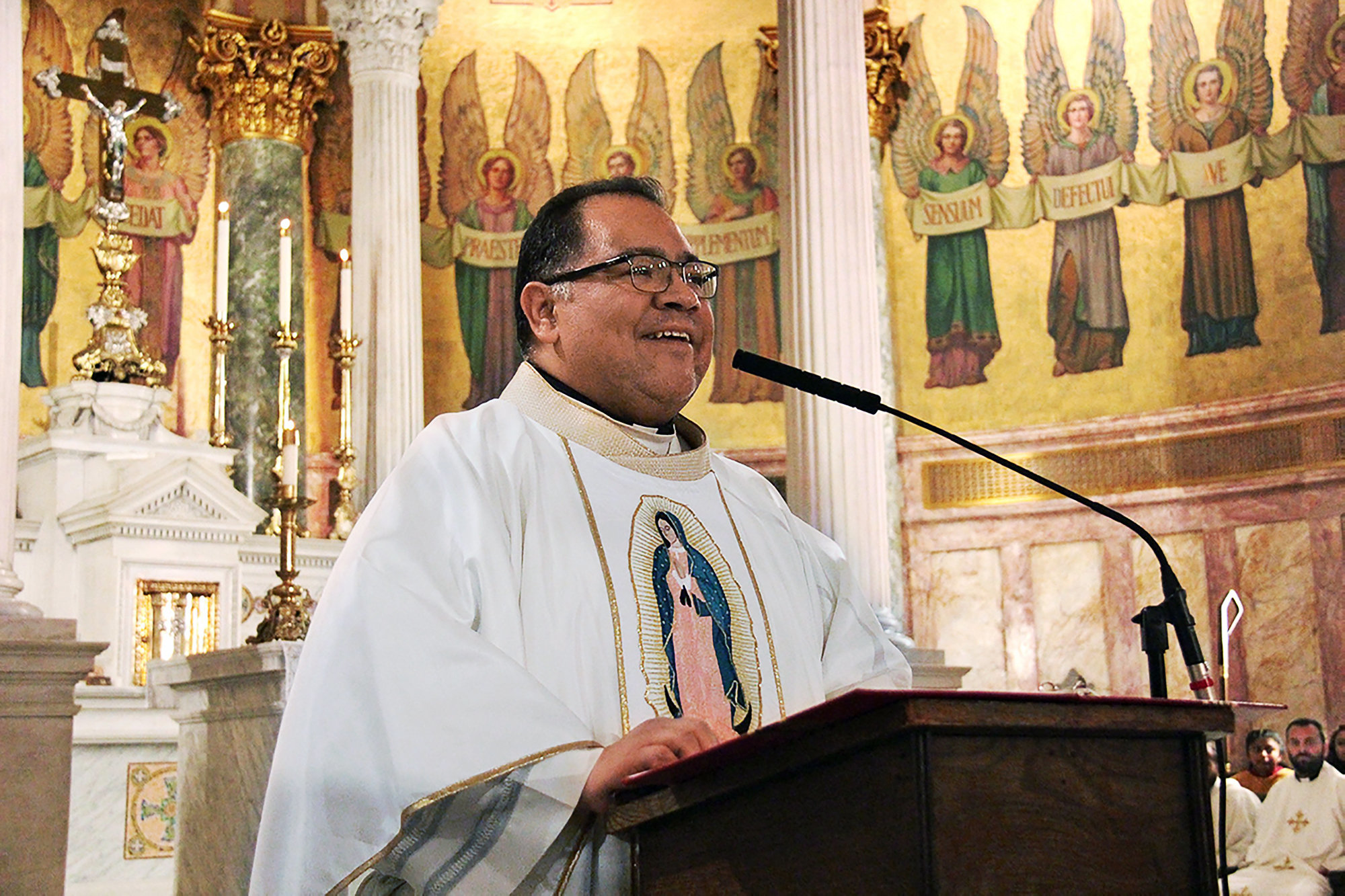
St. Regis Parish, Trafford issued the following announcement on September 6.
We all witnessed on television and in the news the tremendous devastation across much of Louisiana caused by Hurricane Laura. The most extensive damage occurred in the Diocese of Lake Charles in Southwestern Louisiana where the storm made landfall in the wee hours of the morning of August 27. Many of the region’s residents have very little to return to. Bishop Glen John Provost said that virtually every residence and every business has been affected; every parish in the diocese suffered some damage and at least six have been totally destroyed. There is an incredible need for immediate aid as the process of cleaning up and restoring basic services begins. There will also be a sustained long-term need as the people of Southwestern Louisiana begin rebuilding their communities and their lives. Catholic Charities of Southwest Louisiana immediately sprang into action; in addition to providing immediate disaster relief such as food, water, and shelter, Catholic Charities will be working with disaster victims to assess and help meet their long-term material and spiritual needs when the rebuilding begins. If you would like to help the victims of Hurricane Laura, you can make a direct donation to Catholic Charities of Southwest Louisiana right now by visiting their website, www.catholiccharitiesswla.com. Please continue to keep all those in Lake Charles and beyond who have been affected by the storm in your prayers. As the nation observes Labor Day this weekend, the very unusual Summer of 2020 winds to its unofficial close. In this summer of the coronavirus, with unemployment still extremely high, we should remember in our prayers all of those whose livelihoods continue to be affected by the pandemic. Pope St. John Paul II wrote in his 1981 encyclical, Laborem Exercens: [W]ork is a good thing for man….It is not only good in the sense that it is useful or something to enjoy; it is also good as being something worthy, that is to say, something that corresponds to man’s dignity, that expresses this dignity and increases it. If one wishes to define more clearly the ethical meaning of work, it is this truth that one must particularly keep in mind. Work is a good thing for man—a good thing for his humanity—because through work man not only transforms nature, adapting it to his own needs, but he also achieves fulfillment as a human being and indeed in a sense becomes “more a human being.” [Laborem Exercens, #9] In other words, human labor has value not because it is a commodity in the economic system, but because of the dignity of the laborer. In the aftermath of the Great Recession of a decade ago, the bishops of the United States wrote, “Our nation needs an economic renewal that places workers and their families at the center of economic life and creates enough decent jobs for everyone who can work. Work is more than a paycheck; it helps raise our families, develop our potential, share in God’s creation, and contribute to the common good. Everyone and every institution has a role to play in building a more just economy. In the words of our Conference, we seek an economy that serves the person rather than the other way around.” Let us pray as the nation works to revitalize our economy in the wake of the pandemic that “everyone and every institution”—labor, industry, individuals, and government— may be cognizant of a basic tenant of Catholic social teaching that human labor has value not because it is a commodity in the economic system, but because of the dignity of the laborer. Happy Labor Day! As the new school year got underway last week, it occurred to me that I forgot about the customary Blessing of Students and Teachers. I will rectify my faux pas at both Masses next weekend. All students, including collegians, and teachers are invited to receive this blessing. On Wednesday the Church honors St. Peter Claver. In 1610, after entering the Society of Jesus, he sailed for Cartagena, Columbia—the center of the slave trade in the Spanish New World— to complete his theological studies. It was during those years that he became deeply disturbed by the harsh treatment of African slaves brought in by the Spanish to labor in the gold and silver mines of the region. Under the tutelage of his Jesuit mentor, Father Alonso de Sandoval, Peter Claver began four decades of ministry to those most of the Spanish considered less than human. As soon as a slave ship entered the port, Peter would immediately begin to minister to the ill-treated passengers. Unlike the slave traders who treated them like animals, Peter would bring them food and medicine. With the help of interpreters he would give basic instructions and assured his African brothers and sisters of their human dignity and God’s saving love. It is estimated that by the time of his death on September 8, 1654, Peter Claver had baptized over 300,000 people! As we strive to minister to those to whom we are called, his words should resound in our hearts: “We must speak to them with our hands before we try to speak to them with our lips.” St. Peter Claver, pray for us!
Original source can be found here.






 Alerts Sign-up
Alerts Sign-up